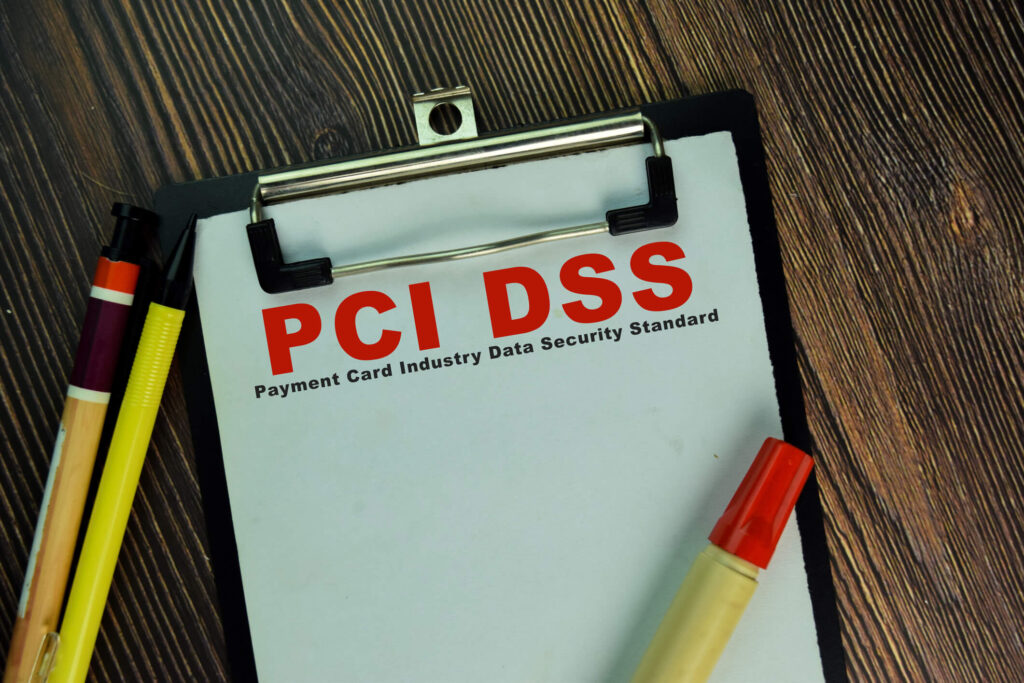
By Cindy Gardea August 20, 2024
In today’s digital age, credit repair services have become increasingly popular as individuals seek to improve their credit scores and financial standing. As a credit repair service provider, one of the most crucial decisions you will make is choosing the right payment processor. A payment processor is a vital component of your business operations, as it enables you to securely accept and process payments from your clients.
However, with numerous options available in the market, selecting the best payment processor for credit repair services can be a daunting task. This comprehensive guide will walk you through the factors to consider when choosing a payment processor, including evaluating security measures, comparing pricing structures, assessing integration options, examining customer support levels, analyzing reporting features, and understanding compliance requirements.
Factors to Consider When Selecting a Payment Processor for Credit Repair Services
1. Evaluating Security Measures
One of the most critical factors to consider when choosing a payment processor for credit repair services is the security measures in place to protect sensitive customer data. Credit repair businesses deal with highly confidential information, including social security numbers, credit card details, and personal financial data. Therefore, it is crucial to select a payment processors that prioritizes data security and employs robust encryption protocols. Look for processors that are Payment Card Industry Data Security Standard (PCI DSS) compliant, as this certification ensures that the processor meets the highest security standards.
Additionally, consider the processor’s fraud prevention measures, such as real-time fraud monitoring, address verification systems, and tokenization. These features help minimize the risk of fraudulent transactions and protect both the credit repair business and its customers from potential financial losses.
2. Examining Transaction Fees and Pricing Models
Another crucial factor to consider when selecting a payment processor for credit repair services is the transaction fees and pricing models offered. Different payment processors have varying fee structures, including flat fees, interchange-plus pricing, and tiered pricing. It is essential to carefully evaluate these options to determine which one aligns best with the credit repair business’s financial goals and transaction volume.
While low transaction fees may seem attractive, it is equally important to consider the overall value provided by the payment processors. Look for processors that offer transparent pricing, with no hidden fees or long-term contracts. Additionally, consider the availability of volume discounts or special rates for high-volume transactions. By carefully analyzing the transaction fees and pricing models, credit repair businesses can find the most cost-effective solution that maximizes their profitability.
3. Assessing Integration Options
Efficient integration with existing systems and software is crucial for credit repair businesses to streamline their operations and provide a seamless customer experience. When choosing a payment processor, consider whether it offers integration options with popular customer relationship management (CRM) systems, accounting software, and other essential tools used in the credit repair industry.
Integration capabilities allow for automatic synchronization of customer data, transaction records, and financial reporting, eliminating the need for manual data entry and reducing the risk of errors. This integration not only saves time and effort but also enhances the overall efficiency and accuracy of the credit repair business’s operations.
4. Analyzing Payment Processing Speed
In the fast-paced world of credit repair services, quick and efficient payment processing is essential to meet customer expectations and maintain a competitive edge. When evaluating payment processors, consider their processing speed and the ability to handle high transaction volumes without delays or disruptions.
Look for processors that offer real-time transaction processing, allowing customers to receive instant confirmation of their payments. Additionally, consider the processor’s uptime and reliability, as any downtime can result in lost sales and damage the credit repair business’s reputation. A reliable payment processors with fast processing speed ensures that customers can make payments seamlessly, enhancing their overall experience and satisfaction.
5. Exploring Customer Support and Service
Customer support and service are crucial aspects to consider when selecting a payment processor for credit repair services. In the event of any issues or technical difficulties, having reliable assistance is essential to minimize disruptions and ensure smooth operations.
Look for payment processors that offer 24/7 customer support through multiple channels, such as phone, email, and live chat. Additionally, consider the processor’s reputation for responsiveness and the average resolution time for customer inquiries or problems. A payment processor with excellent customer support ensures that any issues can be addressed promptly, minimizing the impact on the credit repair business’s operations and customer satisfaction.
6. Understanding Compliance and Regulatory Requirements
Compliance with industry standards and regulatory requirements is of utmost importance when choosing a payment processor for credit repair services. The credit repair industry is subject to various regulations, including the Fair Credit Reporting Act (FCRA) and the Credit Repair Organizations Act (CROA). It is crucial to select a payment processors that understands and complies with these regulations to avoid legal issues and potential penalties.
Look for processors that have experience working with credit repair businesses and have a thorough understanding of the industry’s compliance requirements. Additionally, consider whether the processor offers tools or features that help automate compliance processes, such as identity verification and document management. By choosing a processor that meets industry standards, credit repair businesses can operate with confidence and ensure the protection of their customers’ rights.
Evaluating Security and Fraud Prevention Measures of Payment Processors for Credit Repair Services
Security is of utmost importance when handling sensitive financial information. When evaluating payment processors, consider the following security and fraud prevention measures:
1. Encryption

Ensure that the payment processors uses industry-standard encryption protocols, such as SSL/TLS, to protect data during transmission. Encryption ensures that sensitive information, such as credit card numbers, cannot be intercepted or accessed by unauthorized individuals.
2. Tokenization

Tokenization is a process that replaces sensitive data with unique tokens. This ensures that even if the tokenized data is intercepted, it is useless to hackers. Look for payment processors that offer tokenization to enhance the security of your clients’ information.
3. Fraud Detection Tools
Choose a payment processors that employs advanced fraud detection tools, such as machine learning algorithms and behavioral analytics. These tools can help identify and prevent fraudulent transactions, protecting both your business and your clients.
4. PCI DSS Compliance

Payment Card Industry Data Security Standard (PCI DSS) compliance is essential for any payment processor. PCI DSS sets the security standards for handling credit card information. Ensure that the processor you choose is PCI DSS compliant to minimize the risk of data breaches and ensure the security of your clients’ information.
Comparing Pricing Structures and Fees of Payment Processors for Credit Repair Services
Pricing structures and fees can vary significantly among payment processors. When comparing options, consider the following factors:
1. Transaction Fees
Transaction fees are charges imposed by payment processors for each transaction processed. Some processors charge a flat fee per transaction, while others have a percentage-based fee. Evaluate your business volume and transaction frequency to determine which pricing structure is more cost-effective for your credit repair services.
2. Monthly Fees
Some payment processors charge a monthly fee in addition to transaction fees. These fees may cover additional features or services provided by the processor. Consider whether the additional features justify the monthly fee and align with your business needs.
3. Setup and Integration Fees
Some payment processors may charge setup or integration fees to get your account up and running. Evaluate whether these fees are reasonable and whether the processor offers value-added services or support during the setup process.
4. Chargeback Fees
Chargebacks occur when a customer disputes a transaction and requests a refund. Payment processors may charge a fee for each chargeback processed. Consider the chargeback fees imposed by different processors and their policies for managing chargebacks.
5. International Transaction Fees
If your credit repair services cater to an international clientele, consider the international transaction fees charged by payment processors. These fees can vary significantly and may impact your profitability when dealing with clients from different countries.
Assessing Integration and Compatibility Options with Existing Credit Repair Software
Efficient integration between your payment processor and credit repair software is crucial for seamless operations. Consider the following factors when assessing integration and compatibility options:
1. APIs and Plugins
Look for payment processors that offer APIs (Application Programming Interfaces) or plugins that allow easy integration with your credit repair software. APIs enable data exchange between systems, ensuring that payment information is accurately recorded and processed.
2. Compatibility with Existing Software
Ensure that the payment processor is compatible with your existing credit repair software. Incompatibility can lead to data discrepancies, manual workarounds, and inefficiencies. Consult with your software provider or IT team to determine the compatibility of different payment processors.
3. Customization and Branding
Consider whether the payment processor allows customization and branding options. Customization can help create a seamless user experience for your clients, enhancing your brand image and credibility.
4. Scalability
Evaluate whether the payment processor can scale with your business as it grows. Consider factors such as transaction volume, processing speed, and the ability to handle multiple payment methods. Scalability ensures that your payment processing capabilities can keep up with increasing demand.
Examining Customer Support and Service Levels Offered by Payment Processors for Credit Repair Services
Reliable customer support is essential when dealing with payment processing issues. Consider the following factors when examining customer support and service levels:
1. Availability
Look for payment processors that offer 24/7 customer support. Credit repair services may operate outside regular business hours, and having access to support at any time is crucial for resolving issues promptly.
2. Multiple Support Channels
Consider the availability of multiple support channels such as phone, email, and live chat. Different clients may prefer different communication methods, and having multiple channels ensures that you can reach out to support in the most convenient way.
3. Responsiveness
Research the reputation of payment processors in terms of responsiveness to customer inquiries and issues. Read customer reviews and testimonials to gauge the level of support provided by different processors.
4. Issue Resolution
Evaluate the track record of payment processors in resolving customer issues. Look for processors that have a reputation for efficiently addressing and resolving problems, minimizing disruptions to your business operations.
Analyzing Reporting and Analytics Features of Payment Processors for Credit Repair Services
Comprehensive reporting and analytics features can provide valuable insights into your credit repair business. Consider the following factors when analyzing reporting and analytics features:
1. Transaction Reports
Look for payment processors that provide detailed transaction reports. These reports should include information such as transaction volume, average transaction value, and transaction trends over time. Transaction reports can help you track sales performance and identify areas for improvement.
2. Chargeback Reports
Chargebacks can impact your business’s profitability and reputation. Choose a payment processor that offers chargeback reports, allowing you to monitor and manage chargebacks effectively. These reports should provide information on the number of chargebacks, reasons for chargebacks, and dispute resolution status.
3. Settlement Reports
Settlement reports provide information on the funds deposited into your business account. Look for payment processors that offer detailed settlement reports, including information on settlement amounts, processing fees, and settlement timelines. These reports can help you reconcile your financial records and track cash flow.
4. Analytics and Insights
Consider payment processors that offer advanced analytics and insights into your business performance. These features may include data visualization tools, trend analysis, and predictive analytics. Analytics can help you identify patterns, make data-driven decisions, and optimize your credit repair services.
Understanding the Importance of Compliance and Regulatory Requirements for Payment Processors in the Credit Repair Industry
Compliance with regulatory requirements is crucial for payment processors in the credit repair industry. Consider the following compliance and regulatory requirements:
1. Fair Credit Reporting Act (FCRA)
The FCRA regulates the collection, dissemination, and use of consumer credit information. Ensure that the payment processor complies with FCRA requirements, such as obtaining proper consent for credit checks and protecting consumer information.
2. Credit Repair Organizations Act (CROA)
The CROA sets guidelines for credit repair organizations, including disclosure requirements and prohibitions on deceptive practices. Ensure that the payment processor understands and complies with CROA regulations to avoid legal issues.
3. Payment Card Industry Data Security Standard (PCI DSS)
PCI DSS compliance is essential for any payment processor handling credit card information. Ensure that the processor adheres to PCI DSS requirements to protect your clients’ data and minimize the risk of data breaches.
4. Anti-Money Laundering (AML) and Know Your Customer (KYC) Regulations
AML and KYC regulations aim to prevent money laundering and terrorist financing. Ensure that the payment processor has robust AML and KYC procedures in place to comply with these regulations.
Top Payment Processors for Credit Repair Services
Now that we have explored the key factors to consider when choosing a payment processor for credit repair services, let’s compare some of the top processors in the industry:
1. Stripe
Stripe is a popular payment processor known for its robust security measures and developer-friendly APIs. It offers competitive pricing with transparent fees and supports various payment methods, including credit cards and digital wallets. Stripe also provides extensive documentation and resources for developers, making integration with credit repair software seamless.
2. PayPal
PayPal is a widely recognized payment processor that offers a user-friendly interface and a range of payment options. It provides strong security measures, including buyer and seller protection, and offers competitive pricing for businesses of all sizes. PayPal’s extensive customer base and brand recognition can also instill trust and confidence in your credit repair clients.
3. Square
Square is a versatile payment processor that caters to small businesses. It offers a range of payment solutions, including in-person, online, and mobile payments. Square provides transparent pricing with no monthly fees and offers features such as invoicing and recurring payments. Its user-friendly interface and intuitive design make it an excellent choice for credit repair businesses.
4. Authorize.Net
Authorize.Net is a long-standing payment processor that offers a wide range of features and integrations. It provides robust security measures, including fraud detection tools and PCI compliance. Authorize.Net offers competitive pricing with flexible options, making it suitable for businesses of all sizes. Its extensive network of partners and integrations ensures compatibility with various credit repair software.
FAQs:
Q.1: What is a payment processor, and why is it important for credit repair services?
A payment processor is a service that facilitates the electronic transfer of funds between a customer and a business. It is important for credit repair services as it enables secure and efficient payment transactions, ensuring a smooth payment experience for your clients.
Q.2: How does a payment processor ensure the security of customer transactions?
A payment processor ensures the security of customer transactions through various measures such as encryption, tokenization, and fraud detection tools. Encryption protects customer data during transmission, while tokenization replaces sensitive card information with unique tokens. Fraud detection tools help identify and prevent fraudulent transactions, ensuring the safety of customer transactions.
Q.3: Can I use any payment processor with my credit repair software?
Not all payment processors are compatible with every credit repair software. It is essential to choose a payment processor that seamlessly integrates with your software to ensure a smooth and efficient payment process.
Q.4: What are the typical pricing structures and fees associated with payment processors?
Pricing structures and fees vary among payment processors. Some processors offer flat-rate pricing, while others have tiered pricing based on transaction volume. Typical fees include transaction fees, monthly fees, setup fees, and additional charges for specific features or services. It is important to carefully evaluate the cost structure and choose a pricing plan that aligns with your business’s needs and budget.
Q.5: What kind of customer support should I expect from a payment processor?
You should expect prompt and reliable customer support from a payment processor. Look for processors that offer 24/7 support through various channels such as phone, email, and live chat. Additionally, consider the availability of self-service resources such as knowledge bases and FAQs that can help your clients navigate the payment process independently.
Q.6: How important is the reputation of a payment processor in the credit repair industry?
The reputation of a payment processor is crucial in the credit repair industry. A reputable processor not only provides a secure payment experience but also enhances your business’s reputation and trust among your clients. Research the history, read customer reviews, and check for certifications or partnerships that demonstrate the processor’s credibility.
Q.7: Can I customize the payment experience for my credit repair clients?
Yes, many payment processors offer customization and branding options. Look for processors that allow you to customize the payment page with your business’s logo, colors, and branding elements. Additionally, consider processors that offer customizable payment options such as installment plans or recurring billing, allowing you to tailor the payment process to your clients’ needs.
Q.8: How does payment processing speed impact the overall customer experience?
Payment processing speed plays a crucial role in customer satisfaction. Delayed or declined transactions can lead to frustration and dissatisfaction among your clients. Look for processors that offer fast and reliable transaction processing, ensuring that your clients’ payments are processed quickly and accurately. Features such as automatic payment retries and real-time transaction monitoring can also minimize the risk of payment failures and improve the overall payment experience.
Q.9: Are there any specific payment processors recommended for credit repair services?
While there are several payment processors suitable for credit repair services, some popular choices include Stripe, PayPal, Square, and Authorize.Net. These processors offer a range of features, competitive pricing, and robust security measures that align with the needs of credit repair businesses. However, it is important to evaluate your specific requirements and choose a processor that best fits your business’s needs.
Q.10: What are the key factors to consider when comparing different payment processors for credit repair services?
When comparing payment processors for credit repair services, consider factors such as security and fraud prevention measures, integration and compatibility with your credit repair software, pricing and fees, customer support and service, reputation and trustworthiness, customization and branding options, and payment processing speed and efficiency. Evaluate each factor based on your business’s specific needs and priorities to make an informed decision.
Conclusion
Choosing the right payment processor for your credit repair business is a crucial decision that can significantly impact your clients’ payment experience and your business’s overall success. By considering factors such as security and fraud prevention measures, integration and compatibility, pricing and fees, customer support and service, reputation and trustworthiness, customization and branding options, and payment processing speed and efficiency, you can make an informed decision that aligns with your business’s needs and priorities.
Remember to thoroughly research and compare different payment processors, read customer reviews, and consider their track record in the credit repair industry. By selecting a reputable and reliable payment processor, you can ensure the safety and efficiency of customer transactions, enhance your business’s reputation, and provide a seamless payment experience for your credit repair clients.
